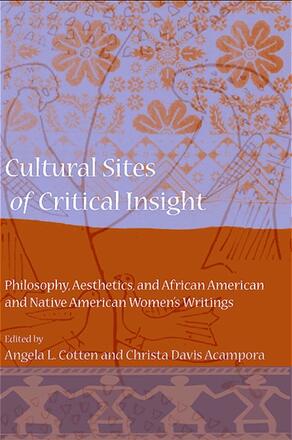
Cultural Sites of Critical Insight
Philosophy, Aesthetics, and African American and Native American Women's Writings
Alternative formats available from:
Explores the interplay between artistic values and social, political, and moral concerns in writings by African American and Native American women.
Description
Bringing together criticism on both African American and Native American women writers, this book offers fresh perspectives on art and beauty, truth, justice, community, and the making of a good and happy life. The essays draw on interdisciplinary, feminist, and comparative methods in the works of writers such as Toni Morrison, Leslie Silko, Alice Walker, Linda Hogan, Paula Gunn Allen, Luci Tapahonso, Phillis Wheatley, and Sherley Anne Williams, making them more accessible for critical consideration in the fields of aesthetics, philosophy, and critical theory. The contributors formulate unique frameworks for interpreting the multiple levels of complex, cultural play between Native American and African American women writers in America, and pave the way for innovative hermeneutic possibilities for reassessing writers of both traditions.
Angela L. Cotten is Assistant Professor of Women's Studies at Stony Brook University, State University of New York. Christa Davis Acampora is Associate Professor of Philosophy at Hunter College and The Graduate Center, The City University of New York. She is coeditor (with Ralph R. Acampora) of A Nietzschean Bestiary: Becoming Animal Beyond Docile and Brutal.
Reviews
"…Cotten and Acampora's text serves as a valuable source to the growing research on African American and Native American culture, with its narrowed focus on literature and writing produced by women." — Feminist Formations
"…these essays tackle both the failure to address all aspects of African Native identities and the absence of sustained studies of African Native literature." — The Year's Work in English Studies
"The essays offer some fresh perspectives on well-known works and will prove useful to students and scholars in philosophy, women's studies, and the humanities … the collection does a good job in presenting new ways of thinking about texts that challenge traditional disciplinary divisions." — American Indian Quarterly